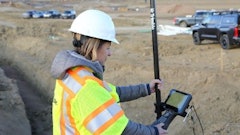
An effective approach to manage and maintain employee accountability is to consider how to make it part of your company’s culture, what I call your “Contractor’s DNA.” If accountability is not part of the overall culture, embraced and practiced from the owner to the front line laborer, a contractor will always struggle with this trait.
So, let’s first discuss how to make accountability a foundational company trait, and then we’ll offer some brief perspectives on how to differentiate managing and maintaining accountability with your leaders and your field workers.
Accountability in most construction companies is fairly easy to spot. People are asked to perform some task…and they do! A crew foreman is directed to split his crew into two smaller crews to better address a jobsite challenge, and he does it! An estimator emails the contractor to have her look at a bid, confirming the pricing, before she leaves for the day, and she does it!
Now, while accountability can be easy to confirm, it’s just as obvious when it is absent. An electrical contractor tells his foreman to call him by 2:00 pm for a jobsite update, and the call never comes! A paving operator is asked to provide an equipment assessment on his paver and blows it off because he’s in a hurry to see his girlfriend. A concrete contractor has asked the GC superintendent for confirmation that he can take over a section of the jobsite for his own crew’s equipment and tool storage before his crews arrive and the superintendent never confirms.
So we know what accountability is when it happens, and we know what it looks like when it doesn’t. So, how do we build accountability into the “work culture” of our company? Consider the following efforts to implement in your company.
Make accountability a “non-negotiable”
We can negotiate pricing and who is going to work on what crew, but we cannot negotiate on how we want our employees to respond to taking responsibility. Making accountability a “non-negotiable” requires positioning it as a company value and communicating its importance at every opportunity. Recognize people when they live it and confront those who do not. Specify what it means to be accountable; provide real examples of what accountability looks like; and encourage your workers that your company is one that is going to practice accountability at all levels of the organization.
Confront non-accountability performance…ASAP!
Most people give more attention to what is clearly high on the priority list or on your radar. When accountability is not performed leaders must reach out and meet with those who have fallen in their efforts and determine causes. If the “cause” is not sufficient there must be some pre-determined consequence. The consequence may not be overly negative but it must have enough of a “sting” that the individual needs to feel the pain enough to do things differently the next time around.
Recognize efforts that demonstrate accountability
All individuals who demonstrate accountability should be recognized. Such recognition can be as minimal as simply telling someone “thanks for a great job” or it can be as public as complimenting a worker in front of her peers. While the type of recognition might fit the level of accountability practiced, it is important that contractors make sure to reconfirm to all workers that being accountable is first and foremost to the company.
“Don’t shoot the messenger”
This is an old saying that still sounds new…and right! When your employees bring you bad news — rather than keeping the information quiet or away from you — accept the message without taking out your outrage on the one who shared the info with you. If you “shoot the messenger” your response might still leave many employees a bit gun-shy about bringing negative news to you again — even though your response isn’t intended personally. This, interestingly enough, is why some workers will not practice consistent accountability behavior. As another old saying goes, “There is only one thing worse than bad news and that’s bad news late.” Do yourself a favor, “don’t shoot your messengers.”
Live it personally
There is no better testimony to making accountability part of the moral fiber of your construction company than for the owner to “walk the talk.” This might require the owner and senior leaders to make sure that wherever they have made commitments, wherever they have made requests, that they follow up and follow through appropriately.
Now, as we look at managing and maintaining accountability in your organization, let’s look at how this can be accomplished. We’ll look briefly at both the management level and that of our field workforce.
At the management level:
- Provide leaders with a clear understanding as to the importance of being personally accountable for their own job function and how to conduct themselves when engaged with their employees.
- Refresh each manager’s expectations to make accountability a key part of the everyday work process. You cannot accept “selective accountability” for your leaders or you risk losing those that follow your leaders.
- Teach your managers how to address workers who have violated the commitment to practice accountability. It is critical that each manager can address such situations calmly, with poise and professional attention.
- Lead and instruct your managers on how to be more specific when communicating, how to place clear directions on tasks, and how to effectively summarize discussions where assignments and tasks are to be executed.
- Engage your managers to be more assertive on personally following up with others whom have accepted job duties. Accountability can indeed expand when leaders follow-up and follow through with their workers.
- Empower your managers to appropriately recognize accountable behavior demonstrated by their workers.
At the field worker level:
- Teach all field workers what accountability is and is not.
- Use examples that highlight great and poor accountability from local or national sources such as trade journals, newspaper articles, etc.
- Before beginning new projects subtly remind project employees as to the importance of being accountable.
- Share with employees what their roles and responsibilities are to successfully complete their job.
- When field workers fall short of being totally accountable, address it quickly and personally. Provide an example as to the results of their accountability shortfall.
- If a field worker continues in not being accountable you must increase the intensity of consequences that will be applied to the individual including steps of coaching, counseling, with documentation, and possible discipline or termination.
Here’s the good news: The vast majority of your managers and field workers, when they have fallen short of being accountable, will respond positively to your simple reminder or gentle reprimand. For those who do not respond in this manner, then certainly you need to escalate the possible corrective action.
Accountability must be a key character “strand” in your corporate DNA. While you might be a small contractor where it’s fairly easy to let little indiscretions slip by, the cost is just as real and sometimes more severe if you do not plan to make accountability a cornerstone of your company’s fabric. The larger the contractor the more serious the role accountability plays in the company as an increasing number of workers (and leaders) can be greatly influenced to hold to sound and possible values.
Making accountability a “non-negotiable” in your company is more than worth the effort. You will have some periodic breakdowns but do not have a breakdown on addressing lapses in accountability. Remember, managing and maintaining accountability does not just happen on its own.
No, it takes contractors who really care about their image, reputation and long-term presence…almost as much as they care about making a profit. In fact, show me a contractor who fully embraces doing things responsibly, who demands accountability at all levels, no matter what, and I’ll show you a contractor who will be successful in more ways than just financial!



















